
Pigeon Point: The Jewel of Tobago
Pigeon Point is a stunning beach on the island of Tobago in Trinidad and Tobago. It is famous for its white sandy shores, crystal-clear turquoise waters, and the iconic thatched-roof jetty. This idyllic spot is perfect for sunbathing, swimming, and enjoying the serene beauty of the Caribbean. The beach is part of the Pigeon Point Heritage Park, which preserves the natural beauty of the area. Visitors can find various amenities, including restaurants, bars, and shops offering local crafts. The park charges a small entrance fee, which helps maintain its pristine condition. Water sports enthusiasts will love the range of activities available at Pigeon Point. You can try windsurfing, kayaking, and stand-up paddleboarding. Snorkeling and scuba diving are popular too, with vibrant coral reefs teeming with marine life just offshore. For a more relaxed experience, take a glass-bottom boat tour to admire the underwater world without getting wet. Pigeon Point is also a great base for exploring other attractions in Tobago. Nearby Buccoo Reef is a must-visit for its spectacular coral formations and diverse marine species. The Nylon Pool, a shallow, crystal-clear area in the middle of the ocean, is another unique spot worth visiting. It is said that the waters here have rejuvenating properties. The vibrant local culture adds to the charm of Pigeon Point. The area hosts lively events and festivals throughout the year, celebrating Tobago's rich heritage and traditions. Don't miss the chance to sample delicious local cuisine, including fresh seafood and mouthwatering tropical fruits.
Local tips in Pigeon Point
- Visit early in the morning or late afternoon to avoid the crowds and enjoy the beach at its most serene.
- Bring cash for the entrance fee to Pigeon Point Heritage Park and for local vendors who may not accept cards.
- Rent snorkeling gear at the beach to explore the nearby coral reefs and abundant marine life.
- Try the local seafood dishes at the beachside restaurants for an authentic taste of Tobago.
- Look out for local festivals and events during your visit to experience Tobago's vibrant culture.
Pigeon Point: The Jewel of Tobago
Pigeon Point is a stunning beach on the island of Tobago in Trinidad and Tobago. It is famous for its white sandy shores, crystal-clear turquoise waters, and the iconic thatched-roof jetty. This idyllic spot is perfect for sunbathing, swimming, and enjoying the serene beauty of the Caribbean. The beach is part of the Pigeon Point Heritage Park, which preserves the natural beauty of the area. Visitors can find various amenities, including restaurants, bars, and shops offering local crafts. The park charges a small entrance fee, which helps maintain its pristine condition. Water sports enthusiasts will love the range of activities available at Pigeon Point. You can try windsurfing, kayaking, and stand-up paddleboarding. Snorkeling and scuba diving are popular too, with vibrant coral reefs teeming with marine life just offshore. For a more relaxed experience, take a glass-bottom boat tour to admire the underwater world without getting wet. Pigeon Point is also a great base for exploring other attractions in Tobago. Nearby Buccoo Reef is a must-visit for its spectacular coral formations and diverse marine species. The Nylon Pool, a shallow, crystal-clear area in the middle of the ocean, is another unique spot worth visiting. It is said that the waters here have rejuvenating properties. The vibrant local culture adds to the charm of Pigeon Point. The area hosts lively events and festivals throughout the year, celebrating Tobago's rich heritage and traditions. Don't miss the chance to sample delicious local cuisine, including fresh seafood and mouthwatering tropical fruits.
When is the best time to go to Pigeon Point?
Iconic landmarks you can’t miss
Store Bay Beach
Discover the breathtaking beauty of Store Bay Beach in Tobago, a perfect blend of relaxation and adventure in a tropical paradise.
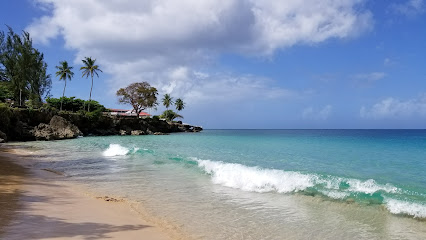
Xanda Tours & Rentals
Discover the best of Tobago with Xanda Tours & Rentals, offering unforgettable boat tours, car rentals, and water sports near Pigeon Point Beach.
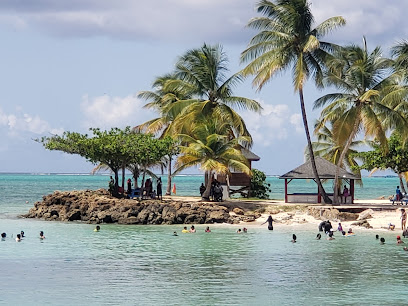
Fort King George
Explore Fort King George, Tobago - A Historical Landmark Offering Stunning Views and Insights into Colonial History.
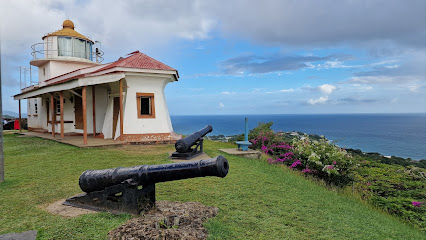
Tobago Plantations
Explore Tobago Plantations: A Tropical Paradise with Golf, Relaxation, and Stunning Scenery Awaiting You.
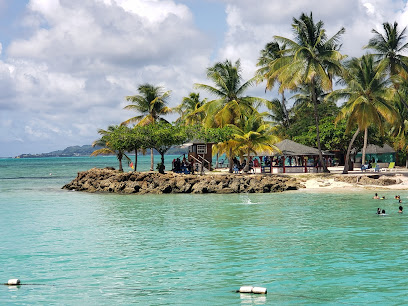
Tobago
Experience the tropical paradise of Tobago, where stunning beaches and lush rainforests await your exploration in the heart of the Caribbean.
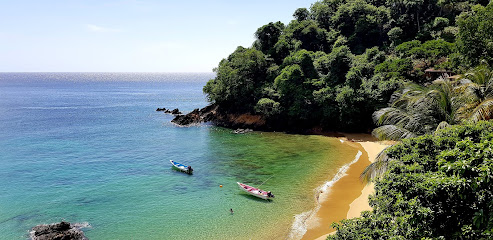
Trinidad
Explore Trinidad's rich cultural heritage, stunning landscapes, and vibrant festivals for an unforgettable Caribbean getaway.
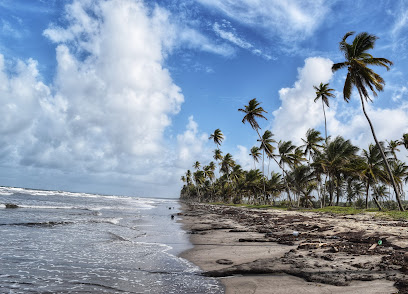
Lopinot Historical Complex
Explore the Lopinot Historical Complex, a historical gem in Trinidad and Tobago, blending rich heritage with breathtaking scenery.
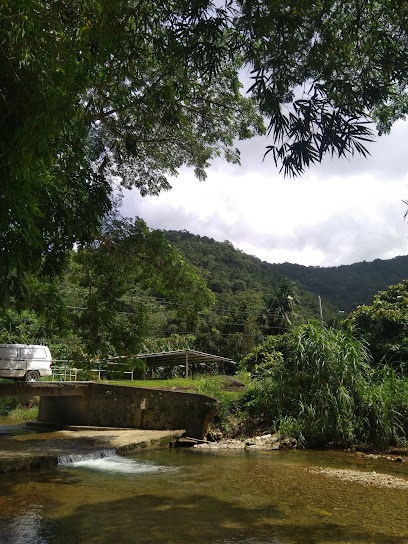
Fort George
Explore Fort George, a historic fort in Port of Spain, Trinidad, offering stunning views and a glimpse into the island's colonial past.
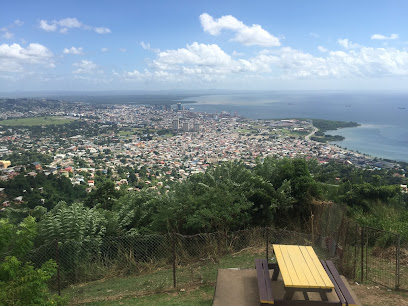
Coco Reef Resort & Spa
Discover the tropical luxury of Coco Reef Resort & Spa in Tobago, where stunning beaches meet exquisite dining and endless adventure.

Scarborough Botanical Garden
Explore the lush landscapes of Scarborough Botanical Garden, a serene oasis in Trinidad showcasing tropical plants and vibrant flowers.
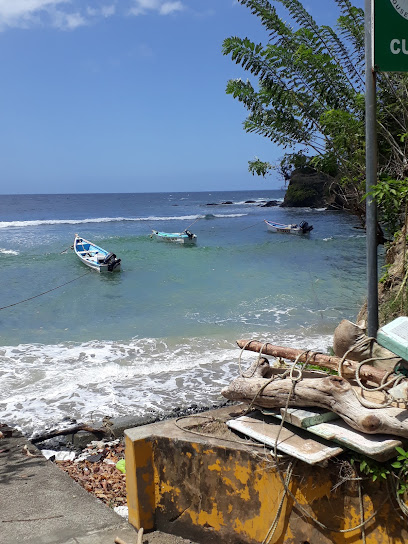
HADCO Experiences at Asa Wright Nature Centre
Experience the breathtaking biodiversity and natural beauty at Asa Wright Nature Centre, a premier lodge for birdwatching and hiking in Trinidad.

Fort Abercromby
Discover the historical charm of Fort Abercromby in Trinidad, where colonial architecture meets stunning natural beauty.
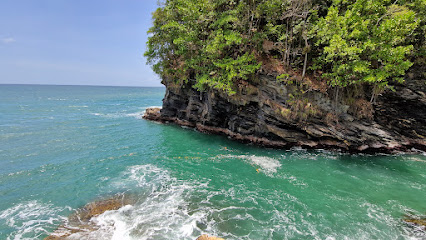
Pigeon Point Beach
Discover the beauty of Pigeon Point Beach in Tobago, where soft sands and crystal-clear waters create the perfect Caribbean getaway.
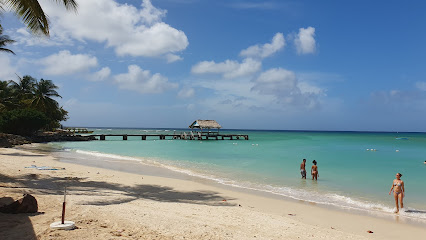
Blanchisseuse Spring Bridge
Explore the serene beauty of Blanchisseuse Spring Bridge, a tranquil escape in Trinidad surrounded by nature's splendor.
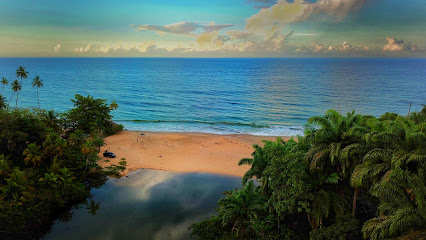
Fort Milford
Uncover the historical treasures of Fort Milford in Crown Point, Tobago, where colonial legacy meets breathtaking coastal views.
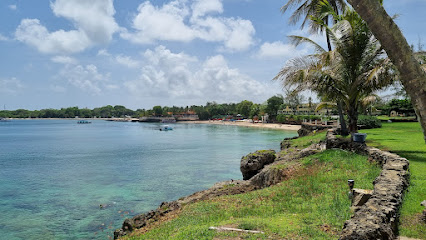
Essential places to dine
The Pasta Gallery Tobago
Experience authentic Italian cuisine at The Pasta Gallery Tobago – where every dish tells a story amidst tropical paradise.
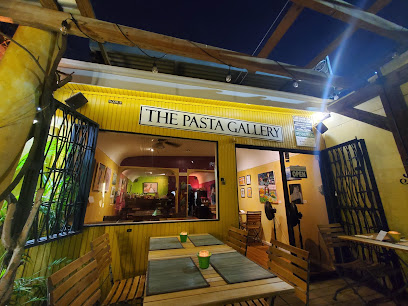
Bago's Beach Bar
Discover the vibrant atmosphere and delicious local cuisine at Bago's Beach Bar in Crown Point, Tobago - where beach vibes meet culinary delight.
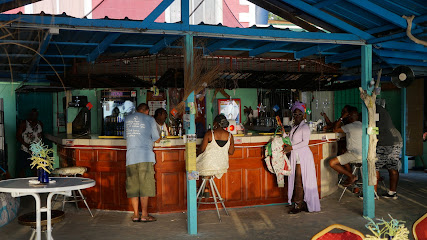
Il Portico
Discover the essence of Italy at Il Portico, where authentic flavors meet warm hospitality in beautiful Crown Point.
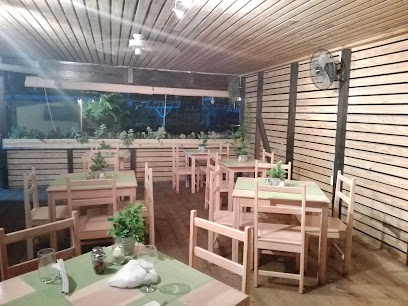
Traditions Bar and Grill
Discover authentic Trinidadian cuisine at Traditions Bar and Grill, where every meal tells a story of island flavors.
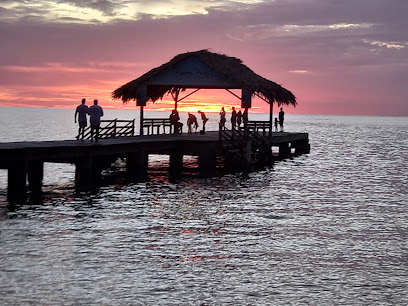
Tobago Paradise Travel & Grill
Experience the flavors of Trinidad and Tobago at Tobago Paradise Travel & Grill, where fresh seafood meets stunning island views.
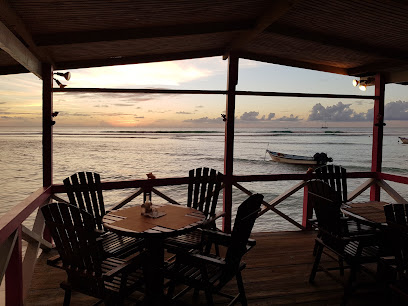
Renmars
Discover Renmars in Crown Point – where Caribbean flavors meet international cuisine in a warm and inviting setting.
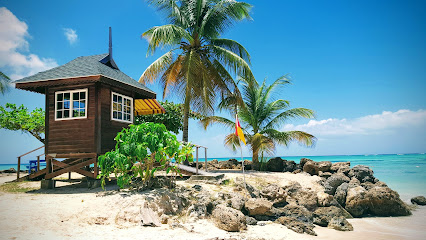
The Crusty Crab And Sweet Lips Conch
Experience the vibrant flavors of Trinidad at The Crusty Crab and Sweet Lips Conch - a must-visit seafood haven in Crown Point.
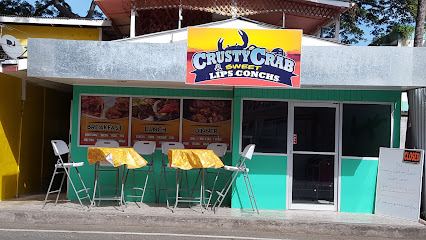
Pirates Island Bar
Experience the vibrant flavors and lively atmosphere at Pirates Island Bar in Bon Accord - your gateway to Caribbean cuisine and culture.
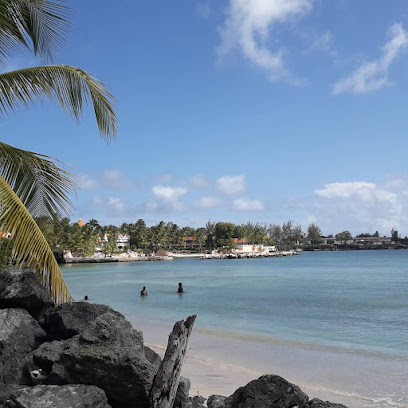
Jenny's Diner
Experience authentic Caribbean cuisine at Jenny's Diner in Crown Point - where every meal tells a story.
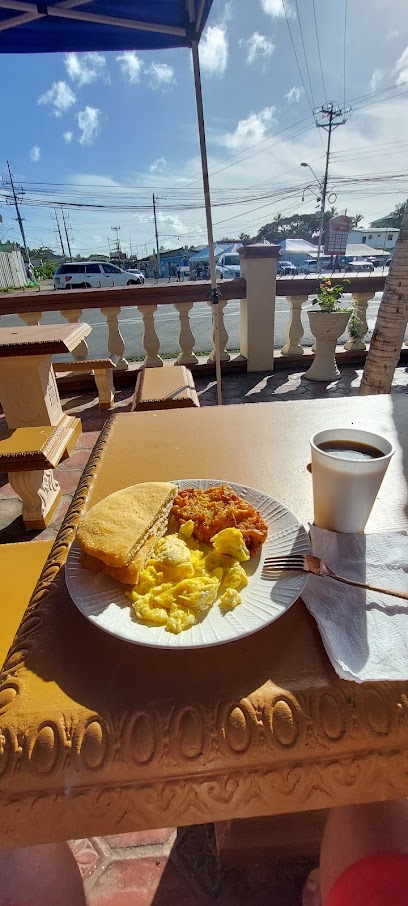
D Attic Restaurant & Lounge
Discover the vibrant flavors of Trinidad at D Attic Restaurant & Lounge in Crown Point—an unforgettable culinary experience awaits you.
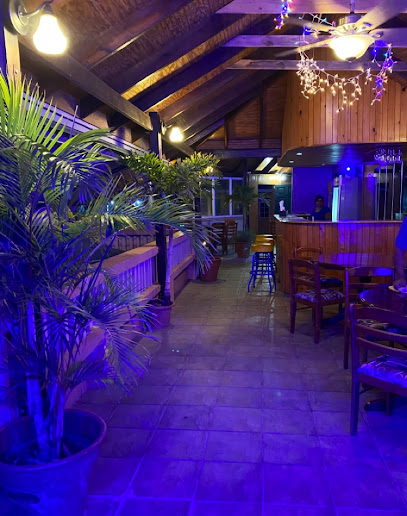
Sharon's
Experience authentic Caribbean flavors at Sharon's on Pigeon Point Road – where every dish tells a story.
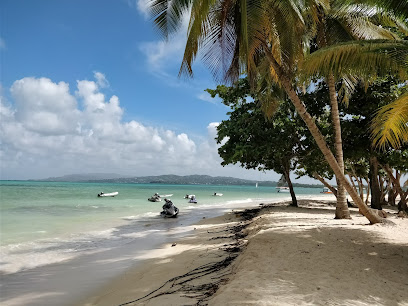
Liz's
Experience authentic Caribbean flavors at Liz's Restaurant on Pigeon Point Road - a culinary delight in Tobago.
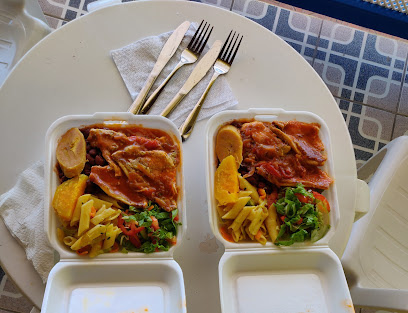
D Original Pork Sandwich
Experience the ultimate fast food delight at D Original Pork Sandwich in Crown Point—where mouthwatering flavors meet local charm.

Alan's Place
Experience authentic Caribbean flavors at Alan's Place on Pigeon Point Road – where every dish tells a story.

Maracas Bake and Shark
Experience authentic Caribbean cuisine at Maracas Bake and Shark—home to Trinidad's famous bake filled with flavorful shark fillet.
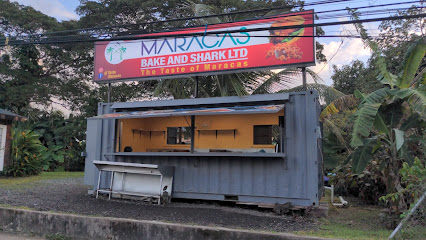
Markets, malls and hidden boutiques
Phoebe's Variety Store
Explore the vibrant offerings of Phoebe's Variety Store, your go-to destination for unique local products and everyday essentials in Tobago.
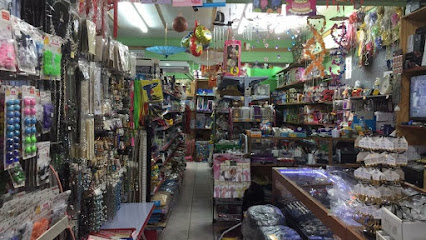
Planet Ceramics
Explore the vibrant world of handcrafted ceramics at Planet Ceramics in Tobago, where every piece tells a story of local artistry and culture.
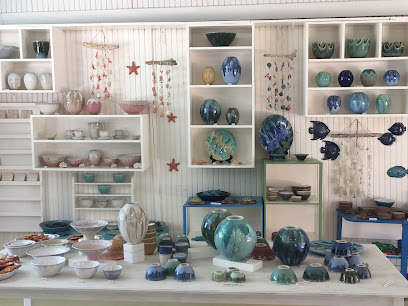
Pigeon Point Boutique
Shop at Pigeon Point Boutique for stylish beachwear and accessories, capturing the vibrant spirit of Caribbean fashion in Bon Accord.
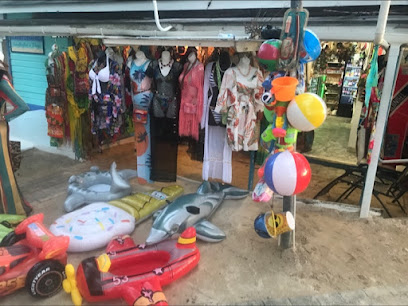
Peeping Fish
Discover stylish beachwear and accessories at Peeping Fish, your go-to beach clothing store in Bon Accord, Tobago for an unforgettable seaside adventure.
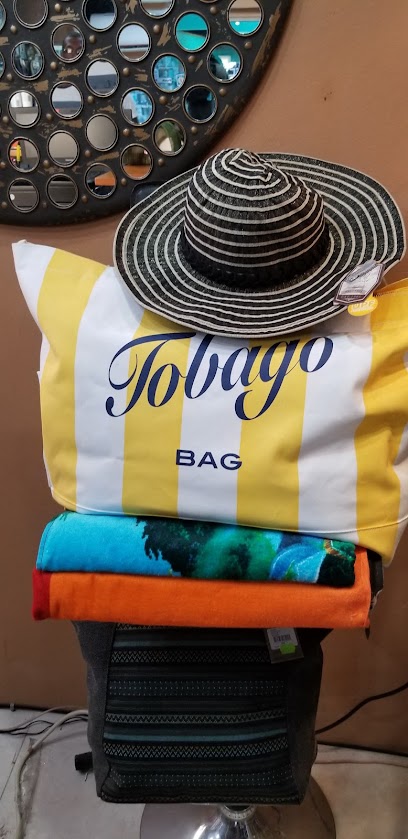
Oogy Wawa Tobago
Discover the essence of Tobago at Oogy Wawa, your go-to store for handcrafted candles and unique perfumes in Crown Point.
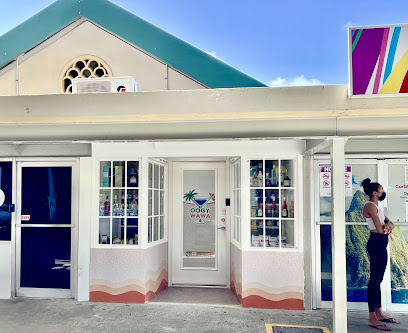
Things Natural
Explore Things Natural in Crown Point for unique handcrafted home goods that capture the essence of Trinidad's vibrant culture and artistry.
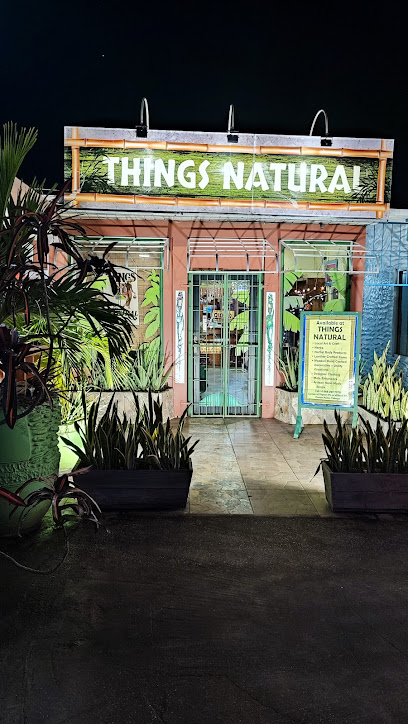
Sandy Beach Boutique
Explore Sandy Beach Boutique: Your go-to destination for stylish beachwear and accessories on the beautiful island of Tobago.
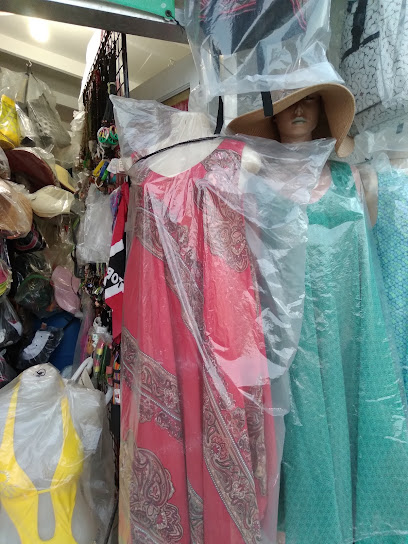
C and K's Variety and Beach Supplies
Discover beach essentials and local treasures at C and K's Variety and Beach Supplies, your ultimate stop for a perfect beach day in Bon Accord.
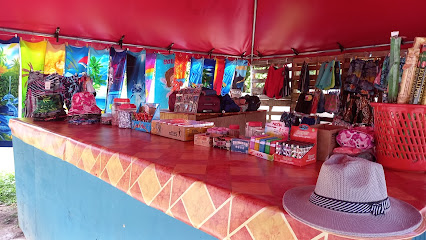
Smooth Surf Corner Store Drinks Chips Snacks
Discover Smooth Surf Corner Store in Crown Point for delicious drinks, snacks, and a touch of local flavor while exploring Tobago.

The Enchanted Isle
Experience the vibrant culture and beachside charm at The Enchanted Isle, Tobago’s premier beach entertainment shop.
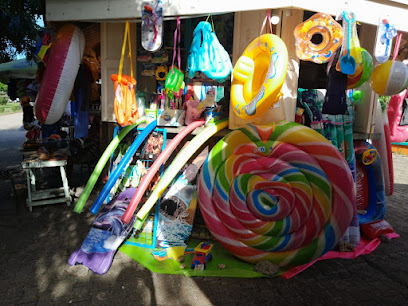
Flip Flop Attic
Explore Flip Flop Attic in Tobago for unique vintage clothing, trendy handbags, and quirky gifts that capture the island's vibrant spirit.
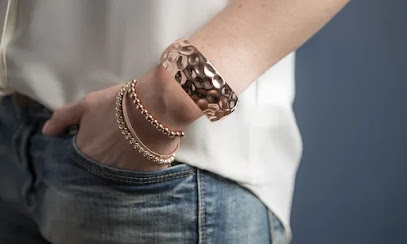
Essential bars & hidden hideouts
Jade Monkey Casino Bar and Grill
Discover the lively Jade Monkey Casino Bar and Grill, a top spot in Crown Point for delicious grilled dishes and a vibrant nightlife experience.
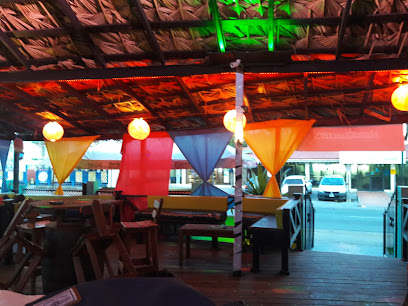
Chill Out Bar
Experience the vibrant atmosphere of Chill Out Bar in Crown Point, where relaxation and fun collide with refreshing drinks and lively entertainment.
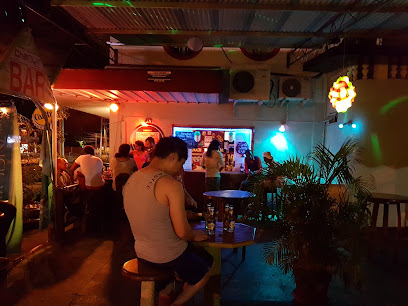
Traditions Bar and Grill
Experience the vibrant flavors of Trinidad and Tobago at Traditions Bar and Grill, where local cuisine meets stunning views and a festive atmosphere.
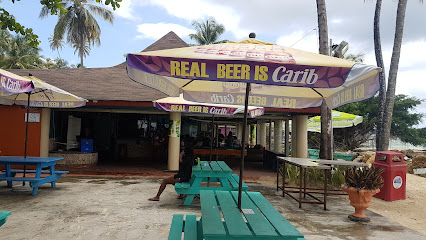
Big Dawg Sports Bar & Lounge
Experience the ultimate sports lounge in Bon Accord with pool tables, live games, and a vibrant atmosphere at Big Dawg Sports Bar & Lounge.
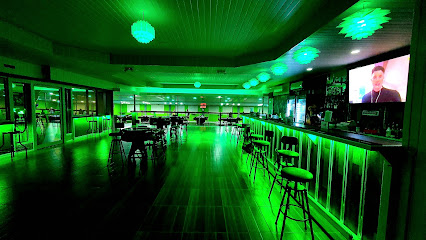
Renmars
Experience the vibrant flavors of Caribbean cuisine at Renmars, a top dining destination in Crown Point, perfect for food enthusiasts.
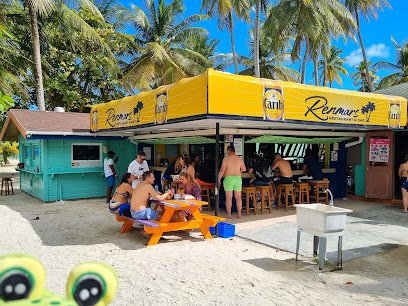
Paradise Exclusive Bar
Discover the vibrant charm of Paradise Exclusive Bar in Crown Point, where relaxation meets tropical indulgence.
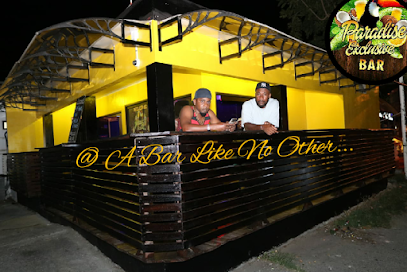
Drunken Joe's
Experience the vibrant nightlife at Drunken Joe's, a lively sports bar in Crown Point known for its great atmosphere and delicious food.
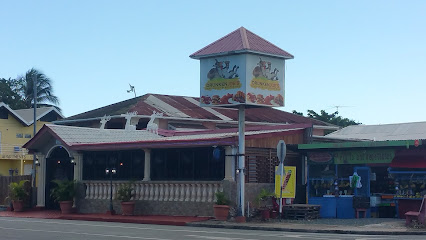
Green Door Bar
Experience the vibrant nightlife of Bon Accord at the Green Door Bar, where friendly service and local flavors come together.
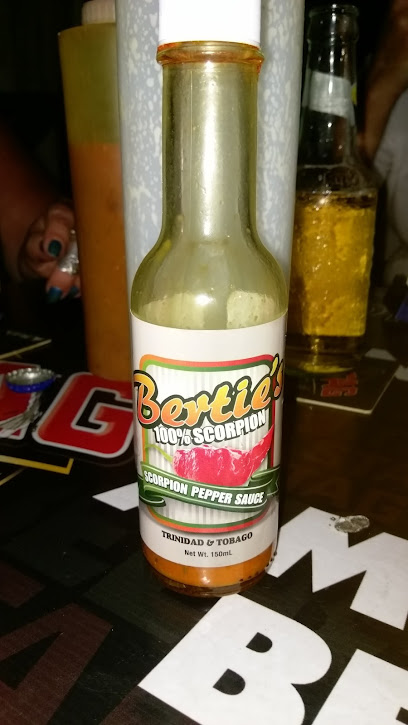
Pirates Island Bar
Experience the vibrant atmosphere and mouthwatering cuisine at Pirates Island Bar in Bon Accord, the ultimate beachside dining experience.
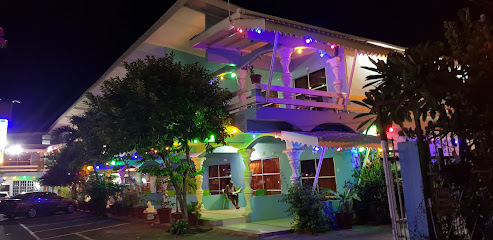
Trevor's Bar
Experience the vibrant Caribbean spirit at Trevor's Bar in Bon Accord, a perfect spot for drinks, games, and local culture.
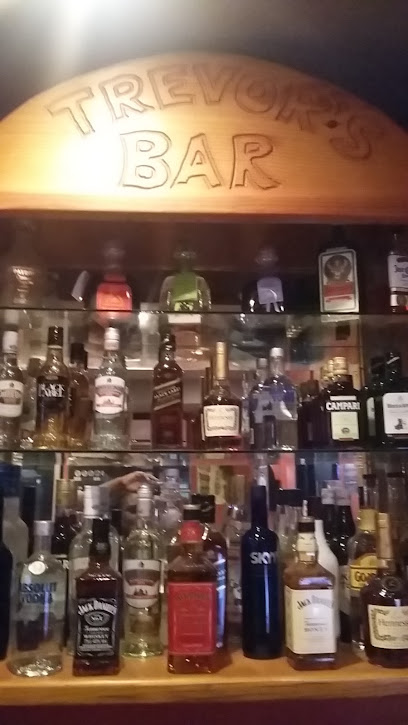
Man on the Rock
Experience the vibrant nightlife at Man on the Rock, a lively bar in Bon Accord offering refreshing drinks and stunning views.
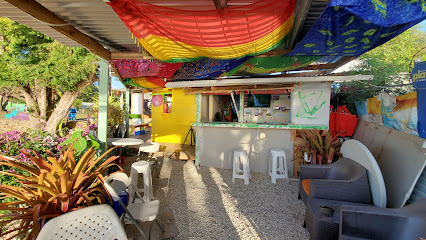
Shotters Restaurant and Bar
Discover the vibrant Shotters Restaurant and Bar, where Caribbean flavors meet a lively atmosphere in Bon Accord, Trinidad and Tobago.
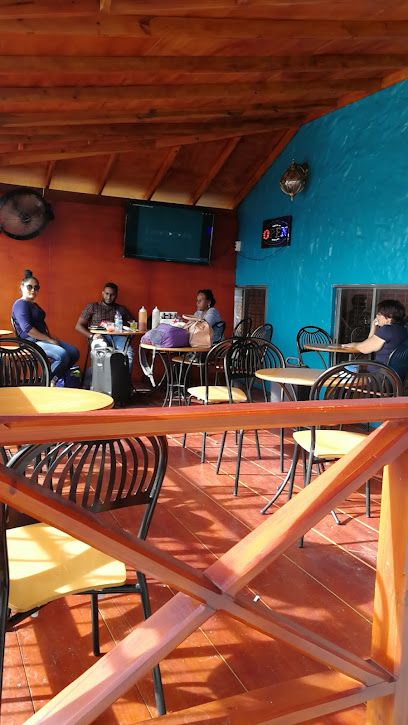
Sharon's
Experience the vibrant flavors of Caribbean cuisine at Sharon's, a local dining treasure on Pigeon Point Road.
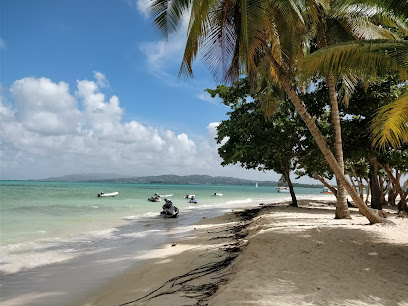
Ben's Bar
Discover the charm of Ben's Bar in Bon Accord, the perfect retreat for tourists seeking refreshing drinks and lively music in a unique setting.
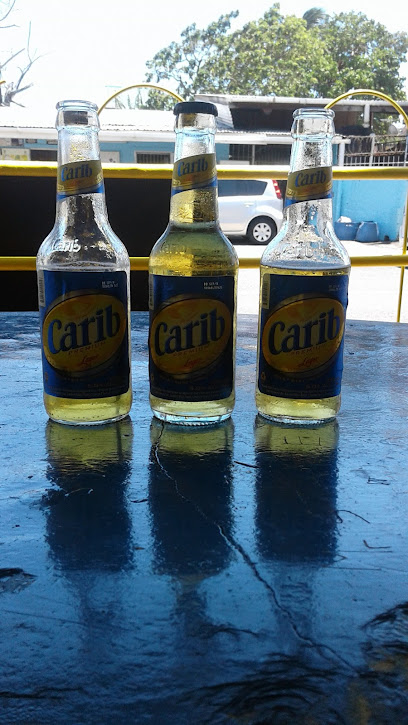
Local Phrases about Pigeon Point
-
- HelloWah Gwaan
[Wah Gwaan] - GoodbyeLater
[Later] - YesYes
[Yes] - NoNah
[Nah] - Please/You're welcomePlease/Tank yuh
[Please/Tank yuh] - Thank youTank yuh
[Tank yuh] - Excuse me/SorrySorri
[Sorri] - How are you?How yuh doin?
[How yuh doin] - Fine. And you?Ahright. An you?
[Ahright. An you?] - Do you speak English?Yuh speak English?
[Yuh speak English?] - I don't understandAh doh understan
[Ah doh understan]
- HelloWah Gwaan
-
- I'd like to see the menu, pleaseLemme see de menu, please
[Lemme see de menu, please] - I don't eat meatAh doh eat meat
[Ah doh eat meat] - Cheers!Cheers!
[Cheers!] - I would like to pay, pleaseAh would like to pay, please
[Ah would like to pay, please]
- I'd like to see the menu, pleaseLemme see de menu, please
-
- Help!Help!
[Help!] - Go away!Go way!
[Go way!] - Call the Police!Call de Police!
[Call de Police!] - Call a doctor!Call ah doctor!
[Call ah doctor!] - I'm lostAh lost
[Ah lost] - I'm illAh sick
[Ah sick]
- Help!Help!
-
- I'd like to buy...Ah wud like tuh buy...
[Ah wud like tuh buy...] - I'm just lookingAh jus lookin
[Ah jus lookin] - How much is it?How much is it?
[How much is it?] - That's too expensiveDat too pricey
[Dat too pricey] - Can you lower the price?Yuh cud lower de price?
[Yuh cud lower de price?]
- I'd like to buy...Ah wud like tuh buy...
-
- What time is it?Wha time it is?
[Wha time it is?] - It's one o'clockIs one o'clock
[Is one o'clock] - Half past (10)Half ten
[Half ten] - MorningMornin
[Mornin] - AfternoonEvenin
[Evenin] - EveningEvenin
[Evenin] - YesterdayYesterday
[Yesterday] - TodayToday
[Today] - TomorrowTomorrow
[Tomorrow] - 1One
[One] - 2Two
[Two] - 3Tree
[Tree] - 4Four
[Four] - 5Five
[Five] - 6Six
[Six] - 7Seven
[Seven] - 8Eight
[Eight] - 9Nine
[Nine] - 10Ten
[Ten]
- What time is it?Wha time it is?
-
- Where's a/the...?Whea de...
[Whea de...] - What's the address?Wha de address dey?
[Wha de address dey?] - Can you show me (on the map)?Yuh cud show me (on de map)?
[Yuh cud show me (on de map)?] - When's the next (bus)?When de nex (bus) comin?
[When de nex (bus) comin?] - A ticket (to ....)Ah ticket (tu ...)
[Ah ticket (tu ...)]
- Where's a/the...?Whea de...
History of Pigeon Point
-
Before the arrival of European colonizers, the area now known as Pigeon Point was inhabited by the indigenous Arawak and Carib peoples. These early inhabitants lived off the land and sea, engaging in fishing, hunting, and small-scale agriculture. Evidence of their presence can be found in the form of ancient artifacts and petroglyphs scattered around the region.
-
The arrival of European explorers in the 15th and 16th centuries marked the beginning of a new era for Pigeon Point. Spanish, Dutch, and eventually British colonizers took control of the area, bringing with them enslaved Africans to work on sugar plantations. The colonial era saw the transformation of the landscape and the establishment of new economic and social structures.
-
During the 18th and 19th centuries, Pigeon Point and its surrounding areas were dominated by sugar plantations. The labor-intensive nature of sugar cultivation led to the importation of a large number of enslaved Africans. The remnants of this period can still be seen in the form of old plantation buildings and machinery scattered across the landscape.
-
The abolition of slavery in 1834 marked a significant turning point in the history of Pigeon Point. Freed Africans began to establish their own communities, while the British colonial government looked to India for a new source of labor. Between 1845 and 1917, thousands of Indian indentured laborers were brought to Trinidad and Tobago, contributing to the diverse cultural tapestry of the region.
-
In the mid-20th century, Pigeon Point began to transform into a popular tourist destination. The picturesque beach, with its white sands and clear blue waters, attracted both local and international visitors. Efforts were made to develop the area with amenities and activities, including the construction of the iconic thatched-roof jetty that has become synonymous with Pigeon Point.
-
In recent decades, there has been a growing awareness of the need to preserve the natural beauty and ecological health of Pigeon Point. Conservation initiatives have been implemented to protect the marine and coastal environments, including the establishment of the Buccoo Reef Marine Park. These efforts aim to ensure that Pigeon Point remains a sustainable and pristine destination for future generations.
-
Pigeon Point is not just a natural wonder but also a cultural hub. It hosts various events and festivals that celebrate the rich cultural heritage of Trinidad and Tobago. From music festivals featuring calypso and soca to food fairs showcasing local cuisine, Pigeon Point serves as a vibrant center for cultural exchange and community gatherings.
Pigeon Point Essentials
-
Pigeon Point is located on the southwestern tip of Tobago, one of the two main islands of Trinidad and Tobago. The nearest airport is the A.N.R. Robinson International Airport (TAB) in Crown Point, approximately 15 minutes away by car. Direct flights are available from several international destinations. Alternatively, you can fly into Piarco International Airport (POS) in Trinidad and take a connecting flight or a ferry to Tobago. The ferry ride from Port of Spain to Scarborough, Tobago takes about 2.5 to 3 hours.
-
Getting around Pigeon Point and Tobago can be done via taxis, which are readily available and relatively affordable. Car rentals are also a popular option for those looking to explore the island at their own pace. Public buses and maxi taxis (shared minibuses) operate across the island, though they may be less frequent in more remote areas. Bicycles and scooters can be rented for shorter distances and a more intimate experience of the area.
-
The official currency is the Trinidad and Tobago Dollar (TTD). Credit cards are widely accepted in most hotels, restaurants, and shops in Pigeon Point and nearby Crown Point. However, it's advisable to carry some cash for smaller establishments and vendors. ATMs are available, but it's prudent to withdraw sufficient cash in larger towns to avoid inconvenience.
-
Pigeon Point is generally a safe destination for tourists, but standard precautions should be taken. Avoid walking alone at night and be cautious in less populated areas. Crown Point and Scarborough are generally safe, but be vigilant in crowded areas and avoid displaying valuables. Reported crimes against tourists are rare, but it is always wise to stay alert and aware of your surroundings.
-
In case of emergency, dial 999 for immediate assistance. There is a police station in Crown Point and medical facilities nearby, including the Scarborough General Hospital. Travel insurance that covers medical emergencies is highly recommended. Pharmacies are available for over-the-counter medications, but keep a basic first-aid kit handy for minor issues.
-
Fashion: Do wear lightweight and breathable clothing, but dress modestly, especially in local communities. Avoid overly revealing attire. Religion: Do respect local customs and traditions. When visiting places of worship, dress modestly and remove hats. Public Transport: Do be courteous and respectful to drivers and fellow passengers. Don’t eat or drink on public transport. Greetings: Do greet locals with a friendly 'Good day' or 'Good afternoon.' Handshakes are common, but always ask before initiating physical contact. Eating & Drinking: Do try local dishes and accept food offerings graciously. Don’t refuse hospitality, as it can be considered impolite.
-
To experience Pigeon Point like a local, visit the local markets in Scarborough and Crown Point for fresh produce and traditional crafts. Engage with locals, who are known for their hospitality and friendliness. Don't miss the Buccoo Reef and Nylon Pool tours for an unforgettable marine experience. For a unique taste of local culture, attend the weekly Sunday School street party in Buccoo Village, featuring live steelpan music and dancing.
Trending Landmarks in Pigeon Point
-
Store Bay Beach
-
Xanda Tours & Rentals
-
Fort King George
-
Tobago Plantations
-
Tobago
-
Trinidad
-
Lopinot Historical Complex
-
Fort George
-
Coco Reef Resort & Spa
-
Scarborough Botanical Garden
-
HADCO Experiences at Asa Wright Nature Centre
-
Fort Abercromby
-
Pigeon Point Beach
-
Blanchisseuse Spring Bridge
-
Fort Milford
Nearby Cities to Pigeon Point
-
Things To Do in Sangre Grande
-
Things To Do in Arima
-
Things To Do in Tunapuna
-
Things To Do in Port of Spain
-
Things To Do in Chaguanas
-
Things To Do in Couva
-
Things To Do in Princes Town
-
Things To Do in San Fernando
-
Things To Do in Westerhall
-
Things To Do in Grenville
-
Things To Do in Point Fortin
-
Things To Do in Sauteurs
-
Things To Do in Guava
-
Things To Do in Gouyave
-
Things To Do in Victoria








